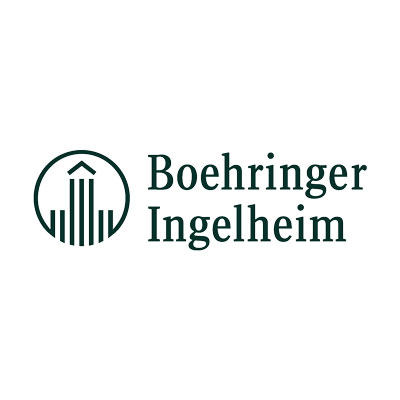HABRI and GAPFA Partner to Share Global Research Insights into the Benefits of Owning Pets
Washington, D.C. and Brussels, Belgium (April 20, 2020) — As millions of pet owners around the world are staying at home during the COVID-19 crisis, many are discovering the benefits of sharing more time with their pets. Research into simple acts like walking a dog or petting a cat continues to demonstrate what many pet owners around the planet have long understood: spending time with pets can provide a wide range of benefits to people, from improved mood and reduced stress, to decreased loneliness and even lower blood pressure. Now, two not-for-profit organizations are teaming up to help amplify and promote the global science and research insights behind the benefits of living with pets.
The Human Animal Bond Research Institute (HABRI) based in Washington, D.C., and the Global Alliance of Pet Food Associations (GAPFA) based in Brussels, Belgium, are working together to promote their on-line libraries of scientific research. Both organizations and their members have spent years aggregating scientific knowledge and information examining how pets and people are beneficial for each other. These learnings span many age groups, cultures and geographies and are posted on their respective websites, www.habri.org and www.gapfa.org. Key resources include information on the physical and mental benefits of pets for children, adults, and older people.
“Pets make our lives better in so many ways, and this is true anywhere around the world,” said GAPFA President David Corley. “Pets give so much to us, and it is our responsibility to ensure we are providing the best nutrition to enable them to be at their best. GAPFA represents 13 national and regional pet food industry associations and three international pet food manufacturers, and we are pleased to join with HABRI to highlight the special companionship and significant health benefits that pets bring to our lives, especially in times like these.”
“As people practice social distancing and stay home, they are increasingly turning to pets for comfort, joy and companionship,” said Steve Feldman, Executive Director of HABRI. “HABRI is proud to partner with GAPFA during these unprecedented times to underscore the scientific research that supports the essential nature of healthy pets in our lives, and the bonds we share with our pets.”
GAPFA and HABRI each maintain an online library dedicated to the study of human-animal interaction and the benefits of pet ownership for many different groups of pet owners around the globe. Examples of key research findings include:
- People who share their home with a pet may have a healthier response to stress, including lower blood pressure.[1][2]
- Pet ownership can have a positive impact on social and emotional development in children. Results of a study comparing elementary school children with or without pets in the home in Croatia found that children who reported greater attachment to pets showed significantly higher scores on empathy and prosocial orientation measures than non-owners and children who reported lower levels of pet attachment.[3]
- Pet ownership can help combat loneliness and enhance social support. A study of Swedish households found that people with pets at home report lower feelings of seclusion.[4]
- A study involving people in Australia and the United States found that pet owners were more likely to get to know people in their neighborhood than non-pet owners. Results indicated that companion animals can be a catalyst for several dimensions of human social relationships, ranging from social interaction and getting to know people, to forming new friendships.[5]
- In older adults, the role of pet ownership may provide a sense of purpose and meaning, reducing loneliness and increasing socialization. These benefits may also increase resilience in older adults against mental health disorders, which may positively influence their mental health outcomes.[6]
- Pet ownership is linked to increased physical activity. In a Japanese study comparing physical activity in pet owners and non-pet owners, dog owners had higher physical activity levels than owners of other kinds of pets and those without pets, indicating that dog ownership may play a major role in promoting physical activity.[7]
- Knowledge of the health benefits of the human-animal bond leads to better pet health and welfare. According to HABRI’s survey of pet owners, when educated about the scientific research on the benefits of pets, 92% of pet owners are more likely to maintain their pet’s health, including keeping up with vaccines and preventative medicine, and 88% of pet owners are more likely to provide their pets with high-quality nutrition.[8]
“My social media feeds are filled with amazing images and stories of people from around the world connecting with their pets,” added Corley. “More than just stories, there is compelling science to show how beneficial the human-animal bond can be.”
For the full library of resources and facts about the important ways pets help improve lives, visit www.habri.org and www.gapfa.org.
References
About HABRI
The Human Animal Bond Research Institute (HABRI) is a not-for-profit organization that maintains the world’s largest online library of human-animal bond research and information; funds innovative research projects to scientifically document the health benefits of companion animals; and informs the public about human-animal bond research and the beneficial role of companion animals in society. For more information, please visit www.habri.org.
About GAPFA
The Global Alliance of Pet Food Associations (GAPFA) is a non-profit association, established in Belgium in 2014. GAPFA’s mission is to support the health and wellbeing of dogs and cats and to promote the benefits of living with them, by providing a forum to address industry consensus on key issues of mutual interest. The Alliance works to promote adherence to food safety and nutritional standards enabling manufacturers to deliver wholesome, healthy and nutritious prepared pet foods; to promote the feeding of prepared pet food to support the health and wellbeing of pets; and to develop and disseminate educational resources which highlight and enhance the benefits of human pet interaction. For further information, please visit www.gapfa.org.
Contact
Jamie Baxter
jamie@theimpetusagency.com
775.322.4022
###





